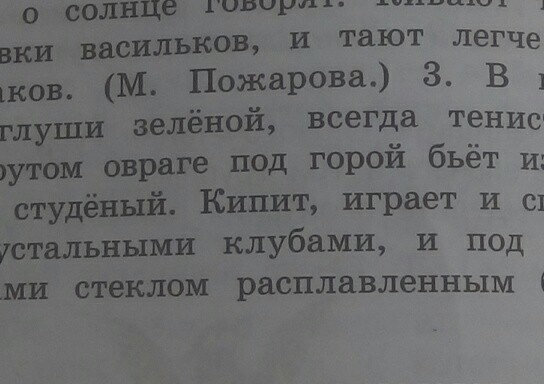Предмет: Русский язык,
автор: Никакет14
помогите пожалуйста. 3 задание не надо
Приложения:

Dgilay:
Можно сфотографировать еще раз? Не чётко видно
да
Там просто задание полностью не видно
я тебе отправлю только что я не сделала
Жду
Кипит , играет и спешит, крутясь хрустальными клубами , и под ветвистыми дубами стеклом расплавленным бежит.
вот
Прости, а что надо сделать?
выписать словосочетание существительное и прилагательное и определить падеж
Ответы
Автор ответа:
0
а можно текст полностью с 3 задания
Похожие вопросы
Предмет: Математика,
автор: kovalkristina928
Предмет: Математика,
автор: sofibilan1402
Предмет: Українська мова,
автор: DimonPlay148
Предмет: Английский язык,
автор: kgza019
Предмет: Українська мова,
автор: gerasimenkojp